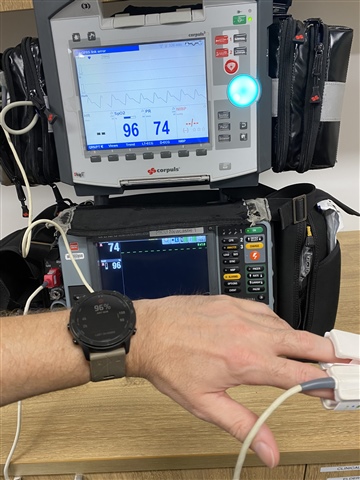Hello. My oxymeter readings always seemed to low - between 89 and 91. I started to use medical-grade oxymeter and I actually have SPO2 between 97 and 99. I see this as problem because in SPO2 the most important range is 85-100, so if the reading is off by 8%, it is actually 50% error. That is not acceptable.
Jan



